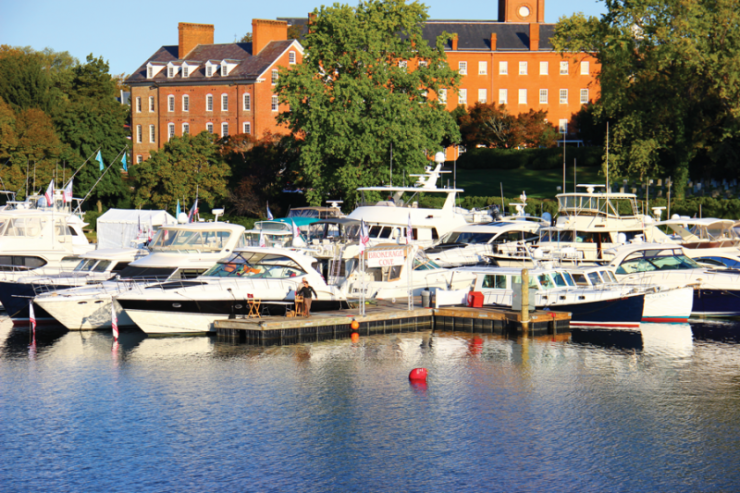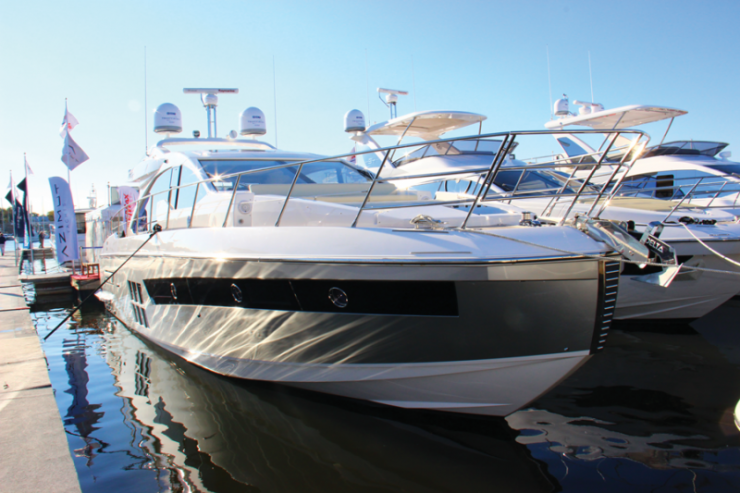To Buy Newer or to Buy Older: That is the Question
You’ve decided you’re ready to buy a boat. You’ve looked at lots of the ads and read plenty of articles. In your boating dreams, what kind of boat do you see yourself in? What kind of boating do you want to do: fishing, cruising, living aboard, or going fast? Determine what boat fits your boating dreams. As you consider boats, you wonder about the pros and cons of buying new or buying previously owned. Here are some boat buying tips to consider as you weigh your options:

Around the block a time or two
There are boats that have been around the block a time or two with low engine hours and lower price tags. These could be a bargain if you find one with a good maintenance record. Low hours due to minimal, although regular use, may be worth considering. When you find one you feel good about, contact a reputable boat surveyor and ask him or her to go over it with a fine-toothed comb. The report will include any potential problems. If you’re willing to consider older boats, the possibilities are only limited by your willingness to be patient and keep searching for the right one.
You may also want to think about resale value of your boat. A boat just a few years old will have already been through her initial depreciation, and a classic boat may actually be worth more after you hold her and treat her with a little TLC for a few years. We’ve all been out on the water or at a dock watching a boat go by and thinking “That boat has some gorgeous lines” or “That’s what a boat should look like.” Mature boats can have more charm and charisma. A little bit of teak can go a long way to making the boat more beautiful, and only a little bit will take minimal maintenance. Previously owned boats come equipped with all the required items to outfit the boat: lines, kitchenware, safety equipment, linens, and more. When kids get new toys, they’re just dying to play with them right away; adults are no different. You put all that time and energy into picking out the boat of your dreams, not to mention the money you’ve spent, and you’re dying to get underway. Most previously owned boats will need nothing more than your clothes and food. You’ll have everything you need to get underway the day you sign the paperwork. How’s that for immediate gratification?

New boat confidence
However, brand new boats give us a sense of confidence and assurance that may be worth the higher price tag of the newer boat. Many people like the idea of starting with a clean slate and knowing the history of the boat. Knowing the history can help an owner design a cleaning and maintenance schedule and plan for repairs and upgrades. Most finance companies will give better financing options, better rates, and longer terms on newer boats. New boats come with warranties and manufacturer support. If anything goes wrong, they should be there to help you through fixing the problem.
Some manufacturers are known for their quality of customer support after the sale. As you talk to people in the boating community and hear about their experiences, the importance of this issue in your decision making process will go up or down. It just seems right that a brand new product ought to work as expected, and personally, I get pretty indignant when it doesn’t. Consider carefully if the extra money for the peace of mind is that valuable. There is value in knowing how well maintenance has been kept up and the quality of replacement parts used, even the brand of oil used. Sure, the records could say oil was changed regularly, but was it done properly with quality oil poured back in? The idea of knowing exactly how your boat was cared for is an appealing idea, but is it worth the money you’ll pay for it?
One of the reasons people don’t like the idea of buying new is the immediate depreciation, but if you’re not going to sell the boat, you don’t have to worry about that. Determine how long you’re going to own this boat. When we were buying our first boat, our broker assured us we’d love it, but we didn’t have enough experience to define what we wanted in a last boat. As you consider this purchase, think about how long you’ll keep the boat and use that as part of your decision making process.
Money matters
Last but not least is the matter of financing options. We’d all love to be independently wealthy and able to plunk down a fat check and say, “I’ll take it.” However, if you’re like most of us, you’ll need a little bit of financial help to make your dream boat a reality. Finance officers will be able to walk you through a long list of options when you’re investing in new boats. They can work with you on all the different terms of the loan. As the boats you’re looking at get older, the list of options gets smaller and smaller. If you need a lot of flexibility in financing options, you’ll need to stick with a newer boat. Whether the boat you pick is brand new or has been around the block a time or two, there’ll be plenty of things to consider. When choosing a previously owned boat, be sure to do your research and dig into as much history of the boat as you can find. If you feel good about her past, you could end up with a real gem and be underway in no time flat. When choosing a brand new boat, work with a reputable manufacturer that will have some great incentives and be there to support you throughout the sale and beyond. You’ll have the boat of your dreams with financing to match. This is a major purchase, so do a lot of research. Think hard about making the right decision.
About the Author: Elizabeth Kelch writes about boating and environmental issues on the Grand Banks In No Hurry.